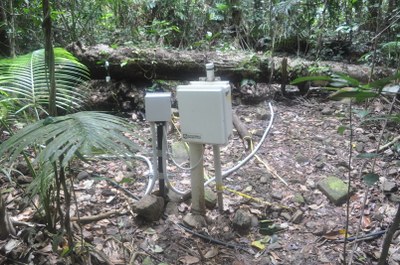In the tropical north of Australia, one university is looking at using the Internet of Things to expand the reach of its research and open new opportunities for the local economy.
On Monday James Cook University opened Australia’s first university IoT lab in Australia.
Based at the Cairns campus in Far North Queensland, the lab is part of the university’s new Internet of Things engineering degree and is supported by Chinese telco vendor Huawei.
The university, which also has campuses in Townsville and Singapore, boasts expertise in areas such as marine sciences, tropical ecology and tropical medicine, all of which are relevant to the IoT and made more relevant by Cairns being the main service centre for much of Australia’s remote Top End and the Torres Strait.
Part of a central mission
“The Internet of Things is based on something that is central to our mission in the Tropics: building greater connectivity between people, place and technology,” said the university’s Vice Chancellor Professor Sandra Harding.
JCU’s IoT degree, the first of its kind in Australia, combines the study of electronic engineering with internet technologies, wireless communications, sensor device, industrial design and cloud computing.
Currently the IoT faculty has 57 first year students, which the university hopes to grow to over 200. The head of the IoT faculty, Professor Wei Xiang, explained why the university decided to offer this course.
Economic drivers
“Primarily it’s driven by the economy, Australia is transitioning from a mining boom to a knowledge and innovation driven economy. So in the middle of 2015, JCU decided to offer an engineering degree in Cairns.”
“The IoT places nicely into traditional strengths at JCU in fields like marine science, marine biology and remote medicine, for example we can use the IoT for reef condition monitoring and our Daintree Rainforest project.”
An electronics Engineer himself, Professor Xiang sees the IoT as the future of industry and leapt at the chance to lead a course when the opportunity arose.
“In the middle of 2015 I thought, ‘this is what I want to do as this is where the future is.’”
Smartcity opportunities
Along with the remote health, marine science and agricultural aspects the City of Cairns itself offers smartcity opportunities. As a moderate sized town of 142,000 relatively isolated from the rest of Australia, Cairns has large tourist traffic coupled with weather extremes – the city gets nearly two meters (80 inches) of rain every summer. Making it a good test bed for new city technologies.
“Cairns Regional Council is very interested in smartcities, I’ve been working very closely with the city council and its innovation team,” says Professor Xiang. “We are also rolling out our smart campus.”
Part of the smart campus initiative is the university installing a NarrowBand-IoT base station provided by its program supporter, Chinese telecoms giant Huawei.

Along with supporting the IoT lab, Huawei also plans to offer JCU IoT students the opportunity to travel to Huawei’s global headquarters in China and its Australian headquarters in Sydney as part of its Seeds for the Future program.
“It gives our students and staff an experimental platform that conforms to the latest IoT international standard,” Professor Xiang said. “It means that as we design devices and sensor networks we can test and configure them using that standard.”
The university’s Vice Chancellor, Sandra Harding shares Professor Xiang’s enthusiasm. “From designing smarter cities, to growing precision agricultural systems, monitoring natural environments in real-time, and creating clever health solutions that work in remote communities,” she says. “We don’t want to be just a part of that future, we want to lead it.”
Paul travelled to James Cook University’s Cairns campus as a guest of Huawei.

Leave a Reply